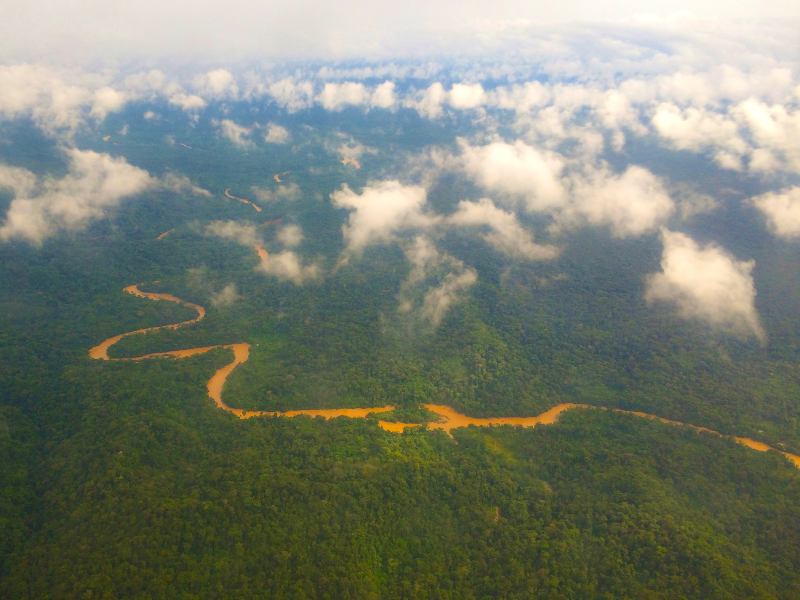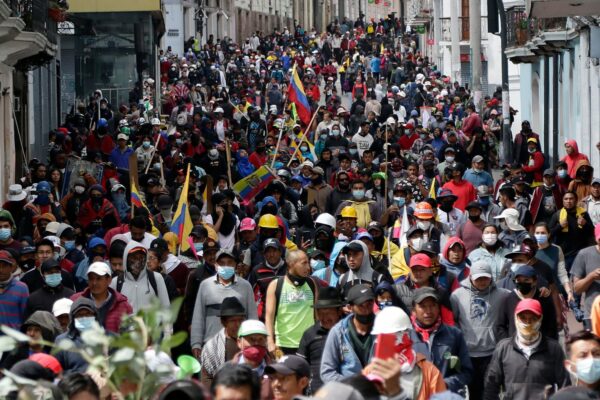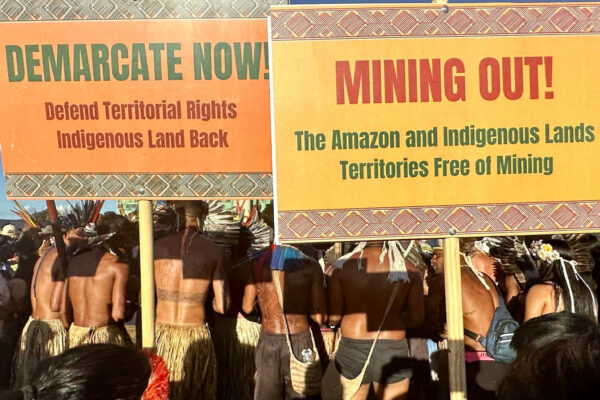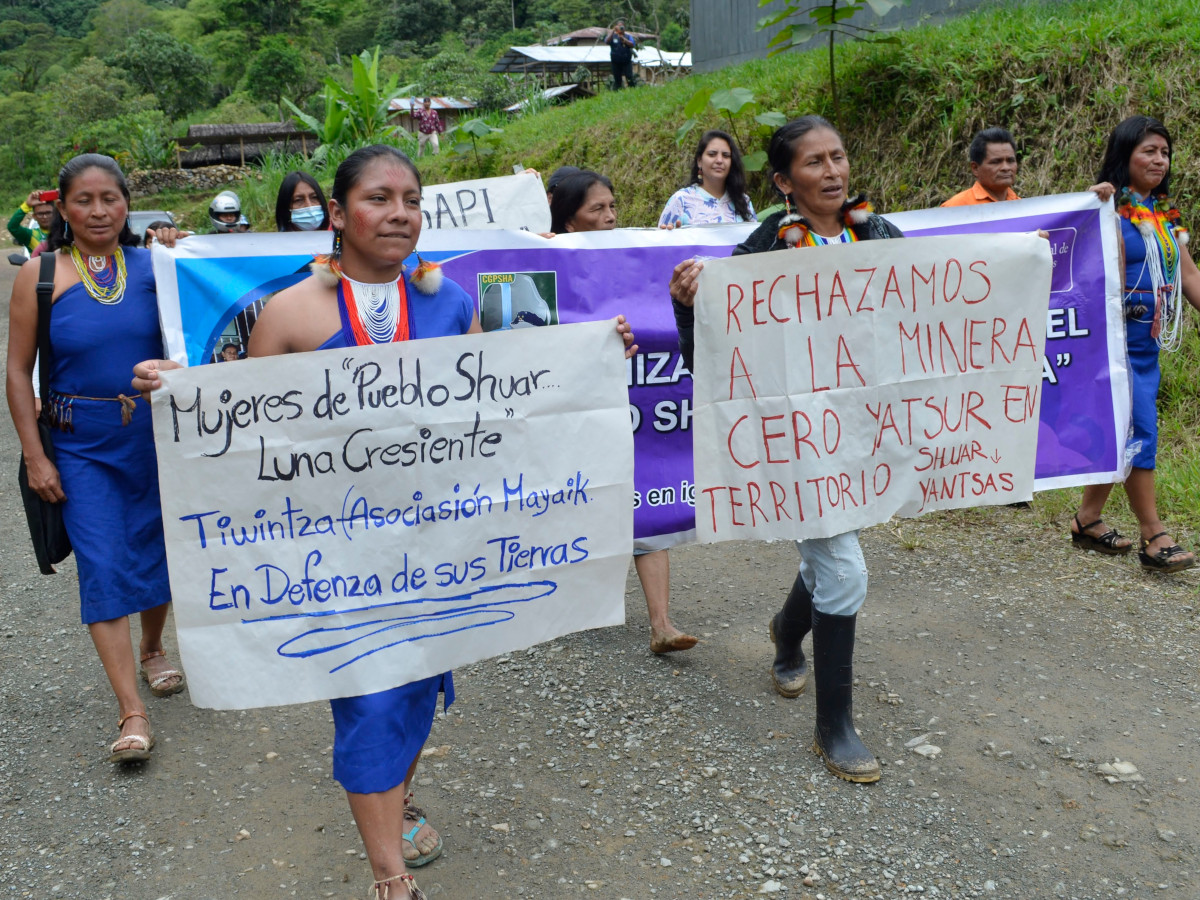In the past six months, former President Correa’s handpicked successor Lenin Moreno has brought back the unpredictability for which Ecuadorian politics was previously known. The country had twelve presidents in the ten years before Correa came to power. Heir to Correa’s “Citizens Revolution,” Moreno was widely expected to continue policies that over a long and difficult decade saw roll backs of basic freedoms and indigenous rights, criminalization of environmental defenders, mining industry expansion, and unfettered borrowing from China, which has effectively mortgaged the country’s future and tethered the country to shady oil-for-cash loan deals that are driving an expansion of oil drilling in the Amazon.
In short order, Moreno publicly broke with Correa, wrestled control of his political party, and began undoing many of the draconian decrees that had shuttered NGOs and undermined free speech. He allowed criminal investigations of former and current government officials to proceed, which uncovered major cases of corruption resulting in the removal and jailing of Moreno’s own Vice President Jorge Glas (who also served under Correa) and other officials.
I arrived back in Ecuador on the heels of perhaps Moreno’s greatest victory to date – a national referendum that essentially reversed many of Correa’s changes to the constitution and ended his potential ambitions for a return to the presidency by reinstating term limits. Voters backed Moreno’s ballot measures by a landslide – almost three-to-one, bucking the trend of other Latin American countries like Bolivia and Venezuela that have modified their constitutions to remove term limits and allow sitting leaders the possibility of indefinite reelection.
Of the seven questions put to voters, two bolstered environmental protections. One of these prohibited metal mining in all its phases in protected areas (“no-go zones”) and urban areas. Another expanded the “no-go zone” area in Yasuní National Park to 50,000 hectares and reduced the area open to oil drilling from over a thousand hectares to just 300.
However, several major mining projects are already underway in Ecuador’s southern Amazon. Those projects, led by Chinese and Canadian companies, have resulted in the forced removal of indigenous communities and clashes with the police, culminating in a state of emergency in 2016 that paralyzed a project for months.
All the while, oil drilling continues in Yasuní National Park, a UNESCO reserve widely considered by scientists to be one of the most biodiverse places on the planet and home to two indigenous nationalities living in voluntary isolation. Eight existing oil concessions overlap the park, and drilling recently began in the Tambococha field inside the ITT (Ishpingo, Tambococha, Tiputini) block, where some 600 wells are planned over the life of the project.
If existing purchasing patterns continue, controversial crude extracted from Yasuní and elsewhere in Ecuador’s Amazon will continue to flow to California markets, something likely to be a topic at Governor Brown’s upcoming Climate Summit as he hopes to tout his climate leadership in the face of Washington’s backtracking on the Paris Accord, domestic drilling, and environmental protections.
For indigenous organizations, environmental defenders, and rights advocates like myself who were spied upon under the Correa administration, Lenin’s unforeseen about-face is a welcome change. But his post-referendum bump and goodwill won’t last long unless he takes concrete action to implement promises made to these groups. The indigenous movement is seeking to hold Moreno to his word after he agreed to an end to all new oil and mining concessions following the march by thousands over 200 miles from the Amazon to Quito to demand an end to extractive industries on indigenous territories without consent of local communities. Yet indigenous leaders expressed frustration at the slow pace of ongoing talks with the government and lack of substantive agreements on many of their key demands.
Moreno has his work cut out for him to get the country out from under the long shadow of Correa, and it remains to be seen how long Ecuadorians will give him to accomplish this challenging task. He should embrace the indigenous movement’s call for no new expansion of extractive industries and permanent protection for their territories and join the growing list of countries like Costa Rica, Ireland, France, and others that are moving towards a managed decline of fossil fuels and towards a just transition for their economy to meet Paris climate goals.
History and Ecuador are waiting on him to decide how he will be remembered.














